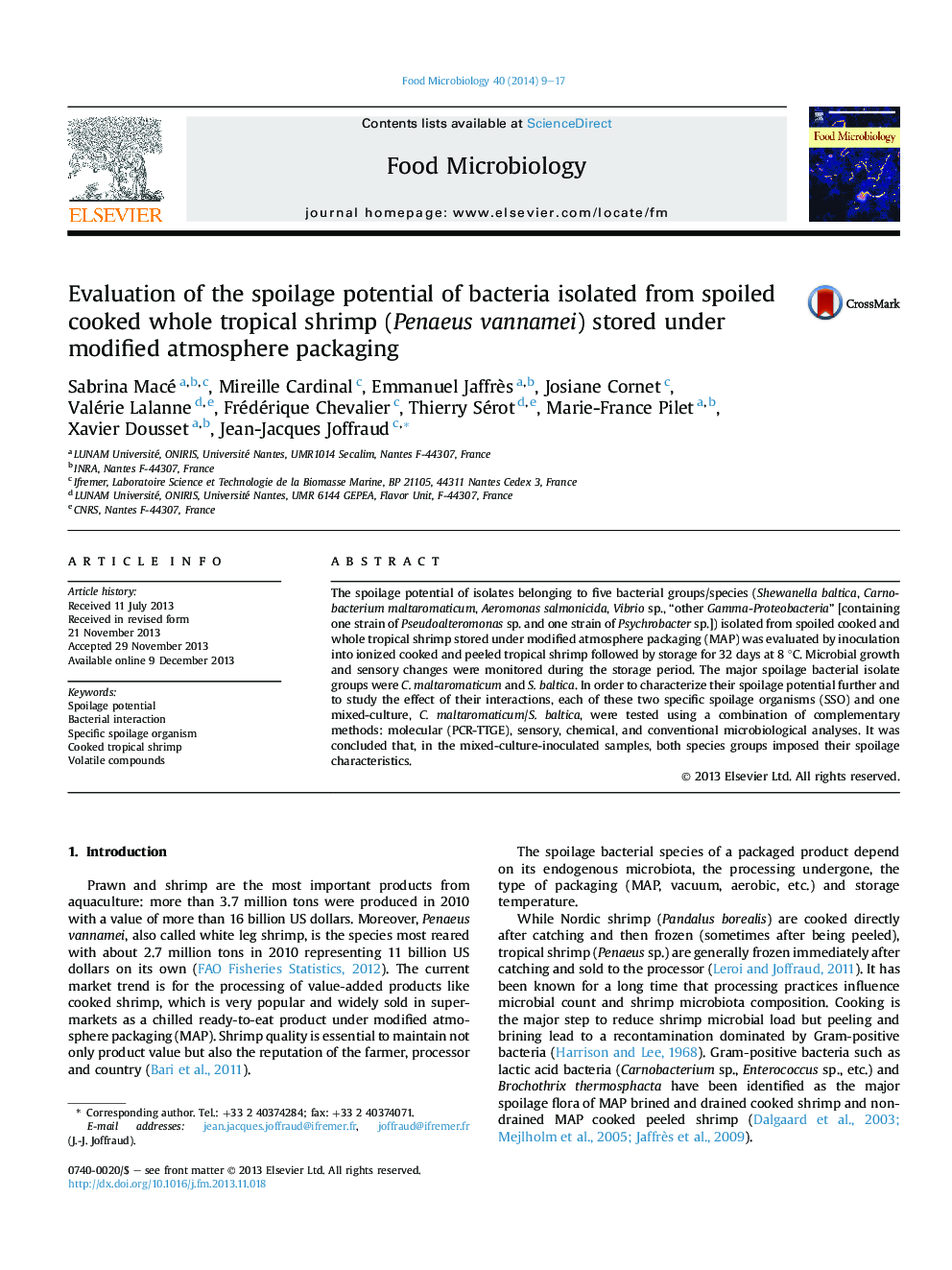| Article ID | Journal | Published Year | Pages | File Type |
|---|---|---|---|---|
| 4362814 | Food Microbiology | 2014 | 9 Pages |
•Spoilage potential of 5 bacterial groups isolated from spoiled cooked whole shrimp.•Specific spoilage organisms were identified among these bacterial groups.•Characterization of spoilage potential and bacterial interactions of 2 dominant spoilers.•In co-culture, each bacterial group imposed its spoilage characteristics.
The spoilage potential of isolates belonging to five bacterial groups/species (Shewanella baltica, Carnobacterium maltaromaticum, Aeromonas salmonicida, Vibrio sp., “other Gamma-Proteobacteria” [containing one strain of Pseudoalteromonas sp. and one strain of Psychrobacter sp.]) isolated from spoiled cooked and whole tropical shrimp stored under modified atmosphere packaging (MAP) was evaluated by inoculation into ionized cooked and peeled tropical shrimp followed by storage for 32 days at 8 °C. Microbial growth and sensory changes were monitored during the storage period. The major spoilage bacterial isolate groups were C. maltaromaticum and S. baltica. In order to characterize their spoilage potential further and to study the effect of their interactions, each of these two specific spoilage organisms (SSO) and one mixed-culture, C. maltaromaticum/S. baltica, were tested using a combination of complementary methods: molecular (PCR-TTGE), sensory, chemical, and conventional microbiological analyses. It was concluded that, in the mixed-culture-inoculated samples, both species groups imposed their spoilage characteristics.
